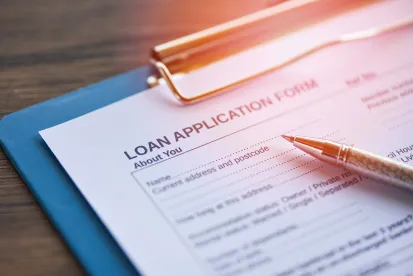t has been said that when something seems too good to be true, it probably is. One recent practical example of this aphorism can be found in the loan forgiveness provisions applicable under the Paycheck Protection Program (PPP), as highlighted by the Internal Revenue Service (IRS) on April 30, 2020, in Notice 2020-32. The IRS clarifies in the notice that participants cannot both have their cake (i.e., receive PPP funding to cover their business expenses) and eat it too (i.e., claim business-level income tax deductions for those same expenses).
The PPP was created by the Coronavirus Aid, Relief, and Economic Security (CARES) Act to provide financial assistance to small businesses in the form of forgivable loans. Under Section 1106 of the CARES Act, the loaned amount will be fully forgiven if the recipient uses the loan proceeds to pay rent, utilities, interest on mortgages, and payroll costs. However, the forgiven amount is reduced if the recipient reduces its full-time employee headcount or cuts the pay of its workforce by 25 percent or more.
Under the usual federal tax rules, forgiven debt generally gives rise to cancellation of debt income, on the theory that, by being excused from repaying a legally binding debt obligation, the debtor realizes a financial benefit that should not escape taxation. In light of the purposes behind the CARES Act, applying this normal tax rule to debt forgiven under the PPP would be counterproductive because it would undermine the value of the program to funding recipients. To address this potential problem, the CARES Act excludes forgivable debt from the funding recipient’s business income. However, the CARES Act is notably silent on the question of whether a funding recipient can deduct business expenses that are expressly covered by a PPP loan.
Given the basic principles of taxation, it would be unlikely for the IRS to grant a taxpayer a deduction for a non-taxable payment, and Notice 2020-32 confirms that suspicion. Notice 2020-32 affirms the general rule that a taxpayer may deduct all ordinary and necessary expenses paid or incurred to carry on its trade or business, including rent, mortgage payments and interest, utilities, and employee wages and benefits. However, in Notice 2020-32, the IRS points out that Section 265(a)(1) of the Internal Revenue Code prohibits taxpayers from deducting expenses that are allocable to tax-exempt income. In light of this prohibition, the IRS concluded that, despite the purposeful beneficence of the PPP, Section 265(a)(1) “prevents a double tax benefit,” thus prohibiting a deduction for business expenses that were already offset by a PPP loan.
Notably, members of Congress have openly shared their disproval of the IRS’s decision. In the Senate, key members of the U.S. Senate Committee on Finance, and Senator Marco Rubio (R-FL) have come together to introduce the Small Business Expense Protection Act, a bipartisan bill that would reverse the IRS’s ruling. When asked to comment on this bill, Senator Tom Carper (D-DE) stated, “Our intention when creating this program was not to give assistance with one hand and take away ordinary business deductions with the other.” Additionally, House Representative Lizzie Fletcher (D-TX) stated that she also intends to introduce similar legislation in the coming days. It is still too early to tell, but these aggressive measures taken by Congress may lead to a reversal of Notice 2020-32 and a big win for PPP loan recipients.
For the time being, PPP loan recipients will need to take Notice 2020-32 into account when making their business decisions for 2020. As the law currently stands, PPP loan recipients should be aware that they may lose their tax deduction for these business expenses, which may affect their future liquidity.




 />i
/>i

